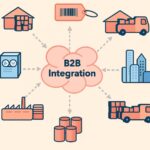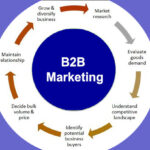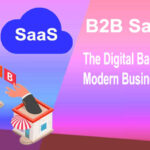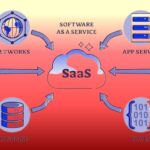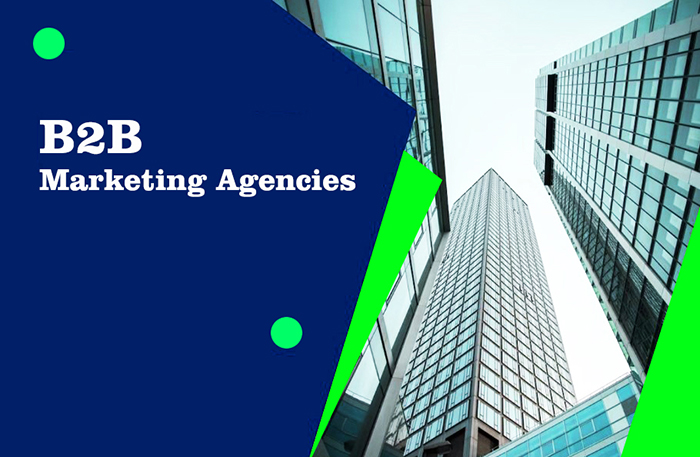
B2B Marketing Agencies: Driving Growth Through Strategy, Data, and Human Insight
In today’s complex and hyperconnected business world, B2B marketing agencies play a crucial role in helping organizations cut through the noise, reach decision-makers, and build sustainable growth engines. Unlike B2C marketing, where the focus often lies in evoking emotion and mass appeal, B2B marketing is a nuanced discipline that requires precision, data intelligence, and deep industry understanding.
This article explores the evolution, functions, strategies, and future direction of B2B marketing agencies, uncovering how they are redefining modern business relationships in the digital age.
1. Understanding What B2B Marketing Agencies Do
At their core, B2B marketing agencies specialize in helping companies that sell to other businesses—rather than consumers—build awareness, generate leads, and convert prospects into clients. These agencies serve diverse industries such as technology, manufacturing, professional services, logistics, and finance.
Their work encompasses multiple marketing disciplines, including:
-
Brand positioning and strategy: Crafting a distinct voice, mission, and visual identity that resonate with professional audiences.
-
Content marketing: Creating educational, high-value content such as whitepapers, case studies, and webinars to build thought leadership.
-
Digital advertising: Running targeted campaigns across LinkedIn, Google, and industry platforms to reach niche audiences.
-
Lead generation and nurturing: Using marketing automation and CRM integrations to convert cold leads into qualified sales opportunities.
-
Account-based marketing (ABM): Designing personalized campaigns for high-value accounts with the greatest revenue potential.
In essence, these agencies combine creativity, analytics, and technology to help B2B companies communicate complex ideas in clear, impactful ways.
2. The Evolution of B2B Marketing
Historically, B2B marketing was driven by trade shows, direct sales, and print advertising. Relationships were built in boardrooms and through personal networks. While relationship-building remains important, the digital revolution has radically changed how B2B buyers make decisions.
Today’s B2B buyer conducts extensive online research before ever speaking to a sales representative. Studies show that over 70% of the buying process now occurs online—through reading product reviews, downloading reports, and engaging with thought leadership content.
This shift has forced companies to adapt, leading to the rise of digital-first B2B marketing agencies that specialize in inbound marketing, SEO, social selling, and marketing automation. The modern B2B marketing agency is not just a creative partner—it’s a strategic growth consultant that integrates technology, analytics, and storytelling to drive measurable outcomes.
3. Core Services Offered by B2B Marketing Agencies
While each agency has its own niche and expertise, most successful B2B agencies provide a blend of these essential services:
a. Strategic Marketing Consulting
Before executing campaigns, agencies develop a comprehensive strategy that aligns with a client’s business goals. This involves market analysis, buyer persona development, and go-to-market planning.
b. Content Creation and Thought Leadership
B2B audiences crave insights, not sales pitches. Agencies create blog posts, ebooks, whitepapers, podcasts, and video series that educate and inspire trust. Strong content positions the client as a thought leader and nurtures long-term credibility.
c. Digital Marketing and SEO
Organic visibility is critical in B2B marketing. Agencies perform keyword research, technical SEO audits, and link-building strategies to ensure clients appear in front of decision-makers searching for solutions online.
d. Account-Based Marketing (ABM)
ABM is one of the fastest-growing trends in B2B marketing. Agencies use intent data and precision targeting to tailor campaigns to specific companies or even individual stakeholders. It’s a high-touch, data-driven approach that often delivers superior ROI.
e. Performance Analytics and Reporting
Every campaign must be measurable. Agencies track metrics like Customer Acquisition Cost (CAC), Marketing Qualified Leads (MQLs), conversion rate, and pipeline velocity. These insights guide continuous optimization and demonstrate marketing’s real impact on revenue.
4. Why Businesses Hire B2B Marketing Agencies
The decision to hire a B2B marketing agency is often strategic. Businesses turn to these experts for several reasons:
-
Specialized Expertise – Agencies bring domain knowledge, marketing technologies, and best practices that internal teams may lack.
-
Scalability – As a company grows, an agency can quickly scale marketing efforts without the time and cost of expanding in-house resources.
-
Fresh Perspective – External teams offer objective insights that can challenge assumptions and identify new growth opportunities.
-
Efficiency and Speed – Agencies have established workflows and tools that accelerate campaign execution.
-
Measurable ROI – The best agencies tie marketing activities directly to sales outcomes, proving their value through data.
Hiring a B2B marketing agency can transform how a company positions itself in the market—shifting from a reactive approach to a proactive, growth-driven strategy.
5. Characteristics of a High-Performing B2B Marketing Agency
Not all agencies are created equal. Successful B2B marketing firms share several defining traits:
-
Deep Industry Knowledge: Understanding the client’s vertical—from healthcare technology to SaaS—enables more relevant storytelling and targeting.
-
Data-Centric Approach: Top agencies rely on analytics, not guesswork, using data to refine campaigns and guide decision-making.
-
Integrated Teams: They bridge strategy, creative, and technology teams to ensure seamless campaign execution.
-
Transparency and Communication: Frequent reporting, open dialogue, and clear KPIs are essential to maintaining client trust.
-
Innovation: Whether adopting AI-driven marketing tools or experimenting with new content formats, strong agencies continuously evolve.
In short, the most effective B2B marketing agencies act as extensions of the client’s team, not just vendors.
6. The Role of Technology in B2B Marketing
Technology underpins nearly every modern B2B marketing effort. Agencies leverage sophisticated tools for automation, analytics, and personalization, including:
-
Customer Relationship Management (CRM) systems like Salesforce or HubSpot for tracking leads and conversions.
-
Marketing Automation Platforms such as Marketo, Pardot, or ActiveCampaign to streamline lead nurturing.
-
AI and Predictive Analytics for identifying high-intent prospects and optimizing campaigns in real-time.
-
Data Visualization Tools like Tableau or Power BI to present performance insights in compelling dashboards.
-
Programmatic Advertising Platforms that automate ad buying and ensure precise targeting.
By integrating these technologies, agencies can deliver more efficient, measurable, and scalable marketing solutions.
7. Common Challenges Faced by B2B Marketing Agencies
While opportunities abound, B2B agencies also face unique challenges:
-
Long Sales Cycles: B2B buying journeys can span months or even years, making ROI measurement complex.
-
Multiple Decision-Makers: Agencies must tailor content for diverse audiences—from technical specialists to C-suite executives.
-
Content Saturation: With so much information online, creating original and valuable content is increasingly difficult.
-
Data Privacy and Compliance: Regulations like GDPR require agencies to handle data responsibly and transparently.
-
Alignment with Sales Teams: Marketing success often depends on close collaboration with client sales departments.
The best agencies overcome these challenges by maintaining agility, using advanced analytics, and focusing on authentic engagement rather than vanity metrics.
8. Case Study: How B2B Marketing Agencies Drive Impact
Consider a mid-sized SaaS company that partners with a B2B marketing agency to increase lead generation.
The challenge: The client had strong products but struggled to reach decision-makers and communicate its value proposition.
The agency’s approach:
-
Conducted deep audience research to identify target industries.
-
Developed a content strategy centered around thought leadership articles, case studies, and webinars.
-
Implemented an ABM campaign targeting 100 high-value accounts.
-
Used LinkedIn Ads and remarketing to nurture leads through multiple touchpoints.
The results:
Within six months, website traffic increased by 65%, lead quality improved dramatically, and the client closed several enterprise-level deals.
This example underscores the transformative potential of B2B marketing agencies when strategy, creativity, and data work in harmony.
9. The Future of B2B Marketing Agencies
The next decade will bring even more profound changes to B2B marketing. Several emerging trends are shaping the landscape:
-
Artificial Intelligence (AI) and Automation: Agencies are increasingly using AI to personalize customer journeys, forecast demand, and optimize content.
-
Human-Centered Marketing: Despite the rise of automation, the emotional side of B2B storytelling is gaining importance—empathy and authenticity now drive stronger connections.
-
Sustainability and Ethics: Brands are expected to demonstrate social responsibility and ethical leadership, influencing marketing narratives.
-
Video and Interactive Content: Webinars, live demos, and interactive case studies will dominate engagement strategies.
-
Data Integration: Agencies will focus on unifying data from multiple sources to deliver 360-degree insights into buyer behavior.
The future B2B marketing agency will be a hybrid of consultancy, technology provider, and creative studio, bridging analytical precision with human imagination.
10. How to Choose the Right B2B Marketing Agency
Selecting the right partner requires due diligence. Businesses should consider:
-
Experience in the same industry or vertical
-
Proven case studies and measurable results
-
Cultural fit and communication style
-
Transparency in pricing and performance metrics
-
Ability to adapt to evolving technologies
A successful partnership is built on collaboration, trust, and shared goals—not just deliverables.
Conclusion
B2B marketing agencies have become indispensable allies in the modern business landscape. They help companies navigate complex buyer journeys, translate technical offerings into compelling stories, and drive measurable business growth.
In a world where competition is fierce and attention spans are short, these agencies provide clarity, creativity, and strategy—the essential ingredients for sustainable success.
The best B2B marketing agencies do more than promote products; they build relationships, foster trust, and shape industries. As technology advances and customer expectations evolve, their role will only grow more vital in defining how businesses connect and thrive in the digital era.


